
Personal update #1: I follow a SIBO diet
I shared it on my Instagram a while back: I’m currently on a strict diet. Because I’ve had a lot of complaints again in the last 1-2 years and this didn’t get better.
I got a lot of reactions and questions when I told this. So I want to update you on how this is going in a series of blogs in the near future.
Too long in the elimination phase
A bit of background: I have been eating low FODMAP for a long time. Since 2015. I have tried several times over the past few years to reintroduce FODMAP groups into my diet.
But I kept reacting to everything, so this didn’t work.
When I started with the FODMAP diet, there was still little information available about the diet and the dietitians who supervised me did not have much knowledge about the diet yet either.
As a result, I was unnecessarily stuck in the elimination phase for too long. Following a restrictive diet for too long is not good for your intestines and the bacteria in your intestines. I didn’t know that then.
In recent years I have worked with several dietitians and there I learned that it is important for a healthy microbiome to eat a varied diet, especially a varied diet in terms of the different types of fiber you consume.
The gut microbiome is the collection of bacteria in your gut. It is important that the bacteria in your gut get good nutrition and that you have a variety of good bacteria in your gut.
If you follow a restrictive diet for an extended period of time, this can lead to the good bacteria in your gut becoming less. And that can also cause complaints.
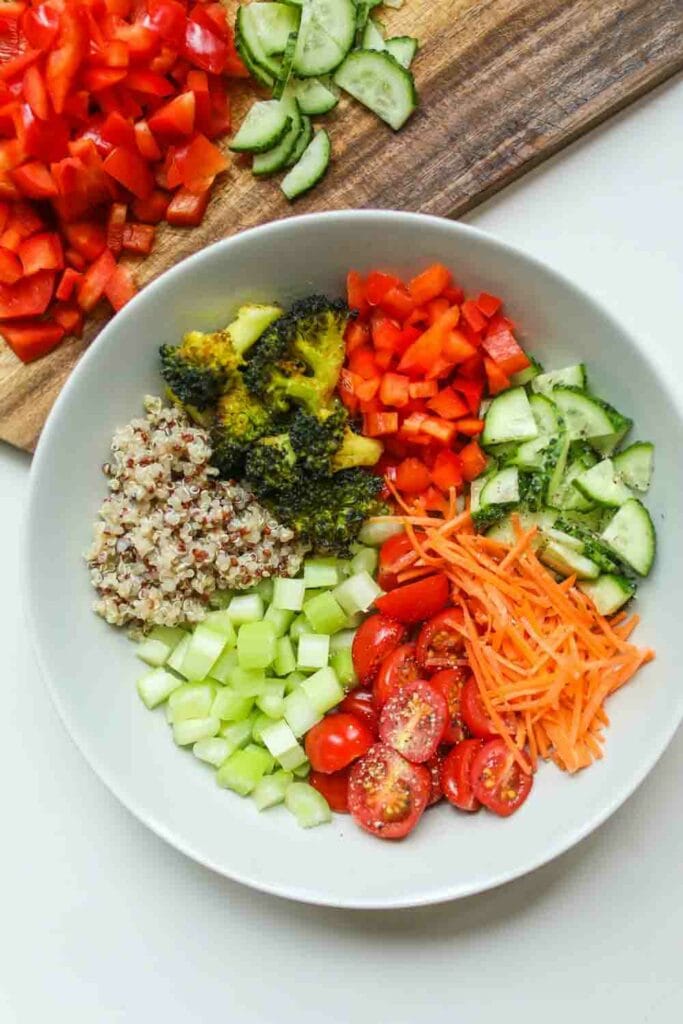
More gut issues
When I started the low FODMAP diet, my symptoms immediately improved enormously. And I also had a very long period in which my complaints went quite well, as long as I ate low FODMAP.
In the last 2 years, this started to change. I will now go into detail about stools and complaints, a little TMI perhaps, but it is important to give a good picture of the complaints.
My main complaints were that after every meal my stomach immediately started to bother me: I had extreme bloating and I also had to go to the toilet very often. Much more often than someone with normal bowel movements. In addition, my stools changed.
These are incredibly annoying complaints, especially in social situations.
I’ve tried everything: leaving out foods completely (such as lactose), stopping drinking coffee, eating less sugar, eating much more varied, and watching my fiber intake.
The complaints did not get better. The GP couldn’t help me any further and also when I went to a gastroenterologist he couldn’t help me because they couldn’t find anything. I had a stool test done at the hospital, but nothing came up.
In recent years, I also worked with several dieticians. Despite the fact that I received good advice there, the complaints did not get better.
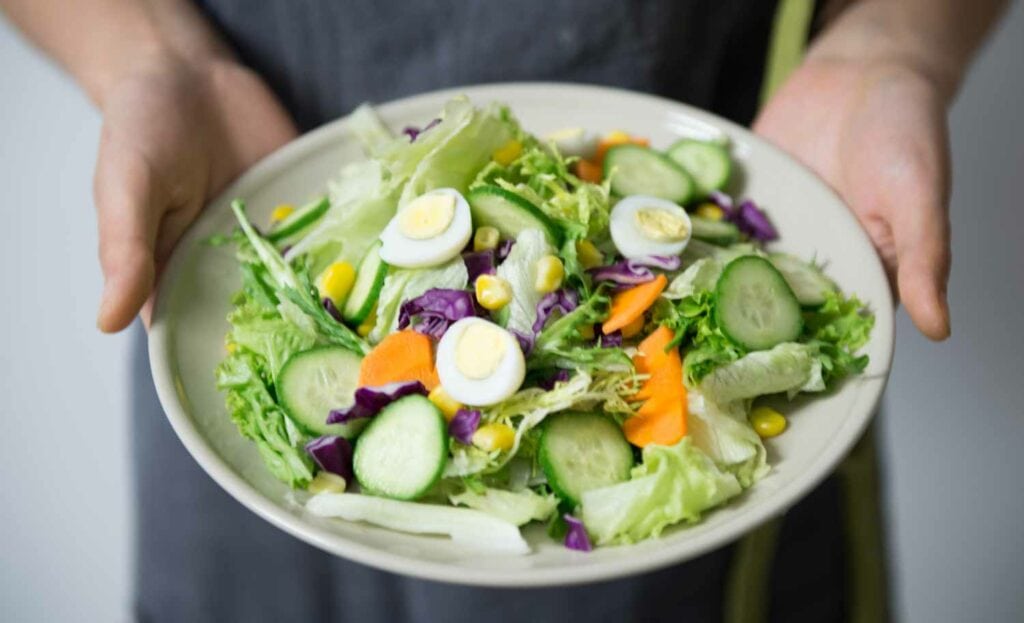
Frustration
I didn’t understand why nothing had come out of the tests that I did, because it was very clear to me that something had changed in the past 2 years.
My stool was definitely not as it should be and the number of complaints I had was not normal either.
When I reported this to my GP, I got the response: nothing was found, this is simply part of your IBS. Maybe you’re just thinking too much about it.
This frustrated me a lot because I was convinced that something could be done about this. Coincidentally, I received a message from a follower on Instagram during the same period.
He was helped very well by his dietitian and managed to get rid of his complaints completely. He recommended her to me and shared the details.
This sounded very good and because I really believed that there was more to it, I decided to contact the dietician.
Treatment plan with the dietician
Important: in the rest of the blog I will tell you more about what I am doing now together with my dietician.
I would like to emphasize here that it is important not to just do what I am doing now or, for example, to follow the diet that I am following without supervision.
The tricky thing about IBS is that the complaints, situations, and also solutions can be very different per person. It is very well possible that 2 people have similar complaints, but that a different method will work for either to get the complaints under control.
That is why it is very important to look at your situation and complaints together with a professional and to determine a treatment plan on that basis.
I’m still in the middle of my treatment plan and I don’t know yet whether this will ultimately be the solution for me, but I would like to take you through the process.
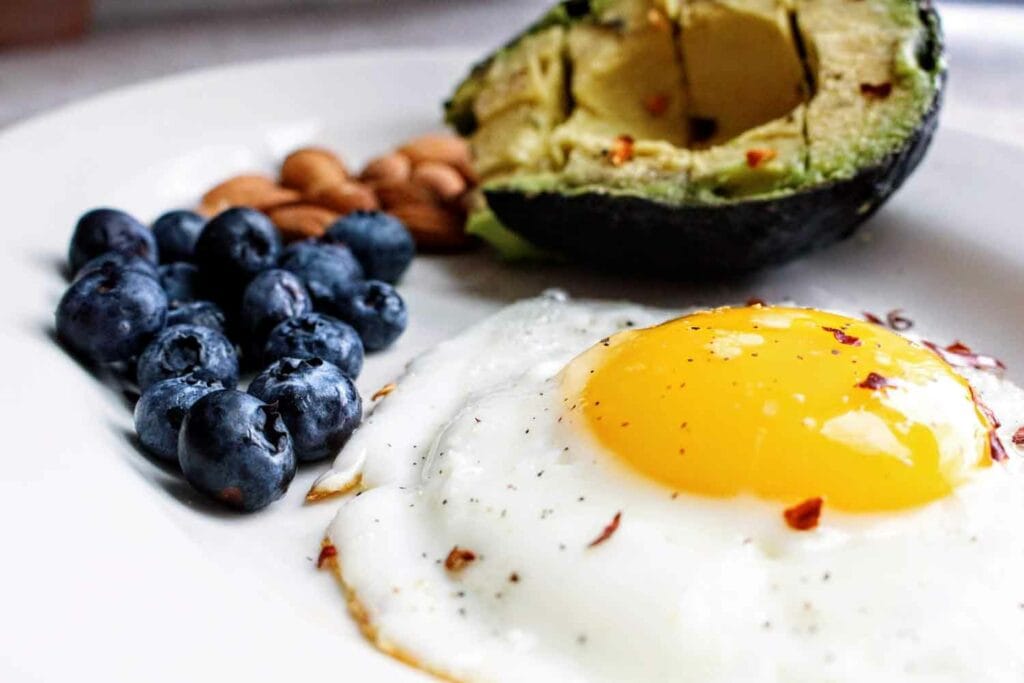
Stool sample test
My dietician advised me to have a stool test done. I had a microbiome stool test done at a German laboratory that looks at the different bacteria in your intestines, but also fungi, yeasts, and other things.
This stool test showed a very clear result: my gut microbiome did not look good.
This was a completely different result from the research that was done at the hospital, everything was fine there. But that test also looked at other things and didn’t go into stool bacteria.
The dietician analyzed the results of the test and created a treatment plan based on this.
I don’t have enough knowledge about this to go into detail here. But in short, the bacteria in my intestines are out of balance, which is called dysbiosis.
The “bad” bacteria in my intestines can grow and develop more easily, while the good bacteria are suppressed.
I also have SIBO: Small Intestinal Bacterial Overgrowth. This means that too many bacteria or the wrong bacteria end up in your small intestine, while they actually belong in your large intestine.
Common symptoms of this are extreme gas, bloating, and altered bowel habits.
When I heard these symptoms I thought: see, I knew that there was something wrong. This just ticks off all the complaints I have.
This also explains why my complaints often occur almost immediately after a meal.
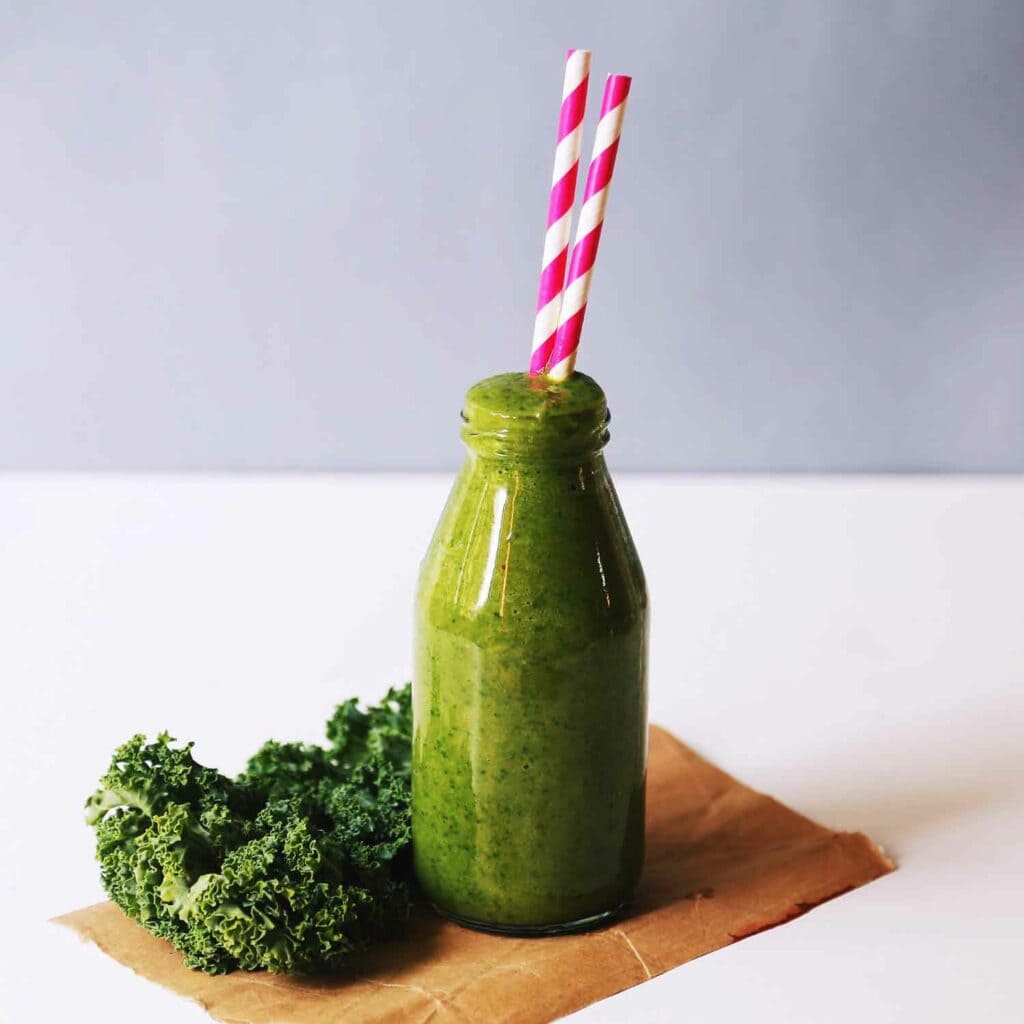
The treatment plan
The treatment plan I have now received is tailored to the results of my examination. The research showed which bacteria in my intestines are too many and which are too few.
Based on that, my dietitian has prescribed me some supplements and I have to go on a diet. The bi-phasic SIBO diet.
This diet is a kind of combination of a FODMAP diet with a low-carbohydrate diet.
The bacteria in the intestines that cause the complaints mainly feed on fermentable carbohydrates.
You will largely avoid these in the first phase of the diet to starve the bacteria so that they will die off.
Things I am avoiding are for example bread, pasta, flour, cookies, candy, sugar, and lactose.
In addition, you can take specific supplements to work on the recovery of your intestines.
In the second phase of the diet, you still eat little carbohydrates, but the diet becomes a little more flexible.
This phase focuses on removing the remaining bad bacteria and fungi in the intestines and further repairing the intestines.
The first phase of the diet
I am now in the first phase of the diet. At the time of writing, I have completed the first 4 weeks. The first phase of the diet lasts 4 to 6 weeks and so does the second phase.
It really is a difficult diet. I am not allowed to eat carbohydrate-rich products at the moment: so no bread, pasta, cookies, etc.
Only a very small amount of rice or quinoa per meal. Weighed 65 grams cooked, so that’s about 5 tablespoons.
In addition, I am not allowed dairy, no sugar, no legumes, and no alcohol. No drinks except water, tea, and 1 cup of black coffee per day.
No sauces and seasonings (with the exception of fresh and dried herbs) and no canned products.
My meals consist of meat, fish, eggs, a little rice or quinoa, low FODMAP vegetables, and 2 servings of fruit per day.
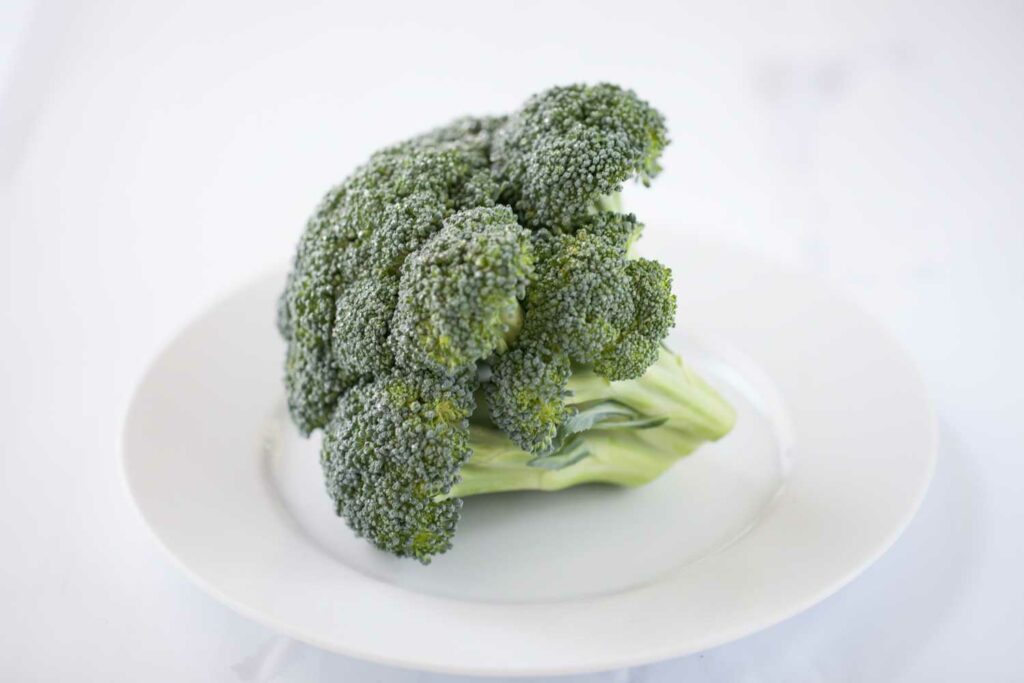
How am I feeling now?
I find the diet very challenging. As you know, I am a huge food lover and I love being in the kitchen.
With these limitations, it is extremely difficult to make fun meals. The food tastes fine, but it’s just very basic and I’m not really the person for that 😉
And social events are also very boring. Eating out is not really possible, I can’t go for a drink with a friend, I always have to skip snacks, and a piece of cake on my birthday was also not an option.
I only now notice how much I normally associate pleasant moments with food, haha. Because every time there is some special moment or event, I realize now that I would always pair that with eating something nice.
BUT: in recent weeks there has been a noticeable improvement in my complaints. My body still had to get used to the supplements I took in the beginning, so I that gave me some extra complaints in the beginning.
But for most of the meals, I don’t feel bloated after eating and my stomach stays calm.
That is really a huge improvement and that gives me a lot of motivation to continue. Because this saves me a lot of inconvenience and annoying moments.
If this diet is going to reduce my complaints, then it is 1000% worth it to have to be very strict with food for a few months and not be able to participate in the eating part of social events.
I will keep you posted in the coming time and try to give an update every month on how things are going.
I want to do this because I know that many people still walk around with complaints despite different treatments and diets.
Perhaps sharing my experiences will help you with some more information to possibly continue looking for treatment for your own complaints.
I am going to see what I’m going to do with recipes on the blog in the near future, maybe I’ll share some low-carb recipe ideas or maybe some more informative blogs will go online.
Please let me know what you would be interested in!

13 Comments
I would love to know more about this please. my system is behaving much in the same way. The gastroenterologist thinks it’s a microscopic colitis.
kind Regards
Heather Feuerbach
Hi Heather, I will keep sharing my experiences! I am also working on a blog to give some more information about SIBO, what it is and how it can be diagnosed. Hope that will help!
Karlijn check out Dr Peter Osbornes book No Grain, No Pain. It is available on Amazon. He also has content on You tube. Very interesting new research on what grains contain gluten. If gluten is one of your issues I highly recommend it. Hope you get this SIBO under control.
Hi Deanna, thank you for sharing! I will check it out
Very interesting Karlijn, I’m so glad you continued to push to find an answer. Sometimes the scope of what we need is beyond our GP, and that is okay. I hope that he/she is supporting you with your new answers and it is a learning process for her/him as well. I like that you are body aware and you knew something had changed. You got this!
Hi Suzanne, yes that is definitely true. I also went to a gastroenterologist and he told me honestly that he couldn’t help me any further, but he did give me the advice to keep on searching. For example to go to a dietician or to more alternative medicine. It was nice that he at least admitted that he couldn’t help me and gave me some other places to go to.
Thank you, I will do my best!
I’m so sorry you’re going through this, but thankful you keep trying. I, too, am going through changes. It is encouraging to get your emails, just wanted to let you know this.
Connie
Hi Connie, I am glad to hear that. I hope you will feel better soon as well!
Could you please share what supplements you are taking and for how long?
I am supposed to start the low FODMAP diet because I have lots of bowel issues. I may go to the bathroom up to six times a day for that problem and sometimes it can look normal and sometimes it can be diarrhea. I’m sure not many people ask you this, but I was wondering what you meant by saying your bowel movements were normal, so I can see if I have t
he same issue. thank you so much.
Hi Susan, for me I also had to go to the toilet 5-6-7 times per day. Sometimes diarrhea, sometimes a bit more normal, but never really normal. I am not too keen on sharing my supplements, this is because the kinds of supplements you need really differ per person and are based on the kind of symptoms you have. So I wouldn’t advise trying to use supplements on your own without the guidance of a professional.
Hi Karlijn,
Thanks for this helpful update. Would you be able to share the contact of this dietician as I think I have hit a similar issue after 2 years or low FODMAP diet.
Hi Kalijn
Thank you for sharing your journey through the difficulties of SIBO. I share that journey and have finally decided to splurge and contract the services of a dietician-nutritionist. I have tried reintroducing foods with very mixed results and have had some major digestive problems especially while traveling, which I love to do. I, like you, am determined to conquer this thing and get back to enjoying food.
Hi Ellen, good for you! We shouldn’t give up on this as I believe that there must be a solution. I hope you will feel better soon!